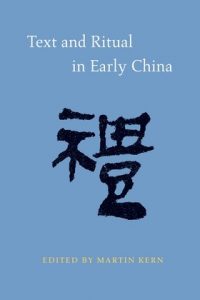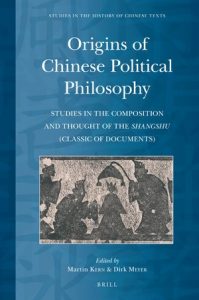
The Department of Chinese Language and Literature organized an academic conversation entitled “Cultural Memory and Early Chinese Civilization” at 8:30 pm on March 1, 2022. Professor Martin Kern of Princeton University and Professor Zhang Yue of University of Macau held a fruitful and constructive academic conversation. Faculty members and students from UM, such as Professor Tang Chon Chit of the Department of Chinese Language and Literature and Professor Yeung Siu Kwai of Faculty of Education, attended the conversation in person, and 300 other participants attended this event online.
Martin kern is a worldly renowned Sinologist. According to his Princeton webpage, he “is the Joanna and Greg ’84 P13 P18 Zeluck Professor in Asian Studies. He also serves as co-editor of T’oung Pao and is a member of the American Philosophical Society. At Princeton, Kern directs the university-wide collaboration ‘Comparative Antiquity: A Humanities Council Global Initiative.’ At Renmin University of China (Beijing), he directs the ‘International Center for the Study of Ancient Text Cultures.’ Kern’s numerous publications, including ten authored or edited books, address topics across all genres of ancient Chinese literature, including poetry as cultural memory and as performance in political and religious ritual; authorship; writing and orality; methodological issues in manuscript studies; early literary thought; and style and rhetoric in philosophy and historiography.” For details, see https://eas.princeton.edu/people/martin-kern.
 |
 |
 |
| Statecraft and Classical Learning | Text and Ritual in Early China | Origins of Chinese Political Philosophy |
In this conversation, Professor Kern used his own academic research experience to provide comprehensive and detailed answers to the many questions raised by Professor Zhang Yue on cultural memory theory, excavated materials, and the study of the Shijing. Professor Kern first exchanged with Professor Zhang on the core concepts of cultural memory theory, including cultural memory, communicative memory, as well as retrospective and prospective angles of memory studies. Then, Professor Kern discussed how he has applied cultural memory theory to the study of the Shijing, including the fluidity and stability of textual transmission, oral tradition and written texts, and the use of excavated documents. Finally, both sides explored the opportunities and challenges of integrating cultural memory theory with Chinese culture. Professor Kern took additional time to answer questions from the graduate students of Department of Chinese Language and Literature. The conversation ended in a friendly atmosphere of academic exchanges.

